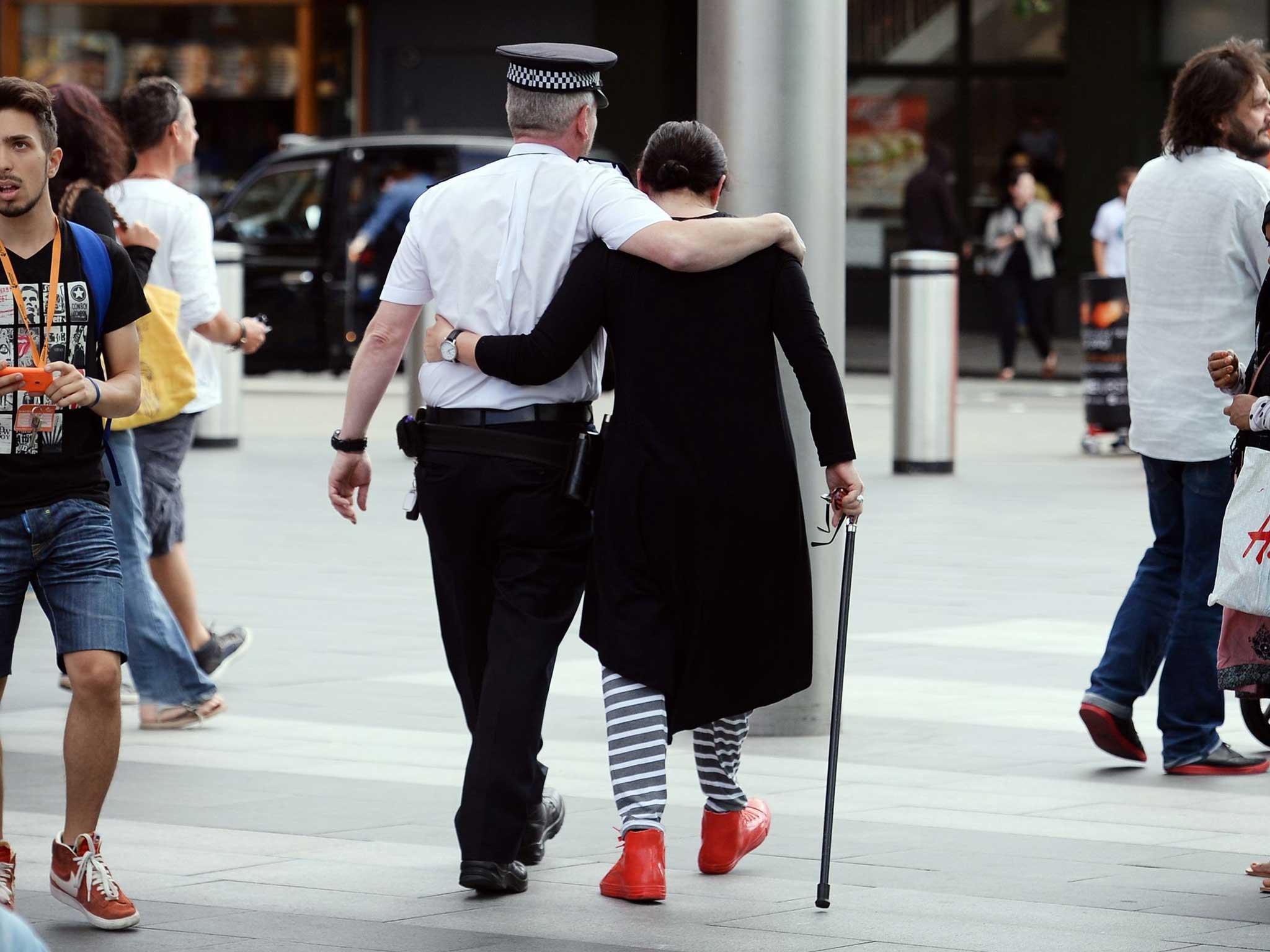London 7/7 bombings anniversary: Commuters 'walk together' in memory of 52 people killed in terror attack a decade ago
Services scheduled across London a decade after attacks that injured hundreds

Your support helps us to tell the story
From reproductive rights to climate change to Big Tech, The Independent is on the ground when the story is developing. Whether it's investigating the financials of Elon Musk's pro-Trump PAC or producing our latest documentary, 'The A Word', which shines a light on the American women fighting for reproductive rights, we know how important it is to parse out the facts from the messaging.
At such a critical moment in US history, we need reporters on the ground. Your donation allows us to keep sending journalists to speak to both sides of the story.
The Independent is trusted by Americans across the entire political spectrum. And unlike many other quality news outlets, we choose not to lock Americans out of our reporting and analysis with paywalls. We believe quality journalism should be available to everyone, paid for by those who can afford it.
Your support makes all the difference.People have taken to the capital's streets to ‘walk together’ on the tenth anniversary of the London 7/7 bombings in which 52 people were killed in four terror attacks.
The London Tubes came to a halt at 11.30am to allow passengers a minute of silence, as commuters were encouraged to ‘walk together’ by getting off their Tube a stop early and walking to their destination, in an act of remembrance for victims.
St Paul’s Cathedral also held a service at 11am, attended by the families of those who died and some of those injured when three Tubes and a bus were bombed on 7th July 2005. Among the speakers was a young Londoner and the Bishop of London, who spoke of the great diversity of the victims and of London itself - and how instead of anger there was a huge outpouring of solidarity following the atrocity.
The attack, the worst single terrorist atrocity on British soil, saw three suicide bombers detonate devices just after 8.50am in three Tube stops. 26 people died after a bomb exploded at Russell Square, Piccadilly, six were killed at Edgware Road on the Circle line and seven at Aldgate station.
An hour after the first three explosions, a fourth terrorist detonated his device on a packed double-decker London bus in Tavistock Square, killing 13 people.
More than 700 people were injured in the attacks.
The names of the murdered 52 were read in St Paul’s as part of the national service of commemoration. The service marked the minute's silence with a cascade of petals released from the Dome of the church and four candles, lit earlier today at each site of attack, were carried into the building.
The minute silence was observed at Wimbledon, where play started at the later time of 11.45am, images on social media showed the crowds and staff standing in silence. Elsewhere in London, in Tavistock Square a short memorial was held to remember. 110 people were injured in the square.
The ‘Walk together’ initiative, started by thinktank British Future, is thought to recall the hours following the devastating attacks when thousands walked through London’s streets after public transport networks shut down. The hashtag #WalkTogether trended on Twitter in London for much of the morning as thousands photographed themselves taking part and shared their memories of the day a decade ago.
Early this morning at 8.50am - the time the first explosive was detonated - representatives from the police, ambulance and fire crews laid wreaths at the Hyde Park memorial. The Duke of Cambridge is expected to join victims' families and emergency staff at the memorial this afternoon for a more informal memorial service including songs, recitals and a reading.
The bombings were carried out by four British men, Mohammad Siqique Khan, 30, Shehzad Tanweer, 22, Hasib Hussain, 18, and Germaine Lindsay, 19, who had links to Al-Qaeda in Pakistan and Afghanistan.
The anniversary comes as a British think-tank warms the UK is more under threat now than it was when the 7/7 bombings occurred.
Experts at the Royal United Services Institute (RUSI) claim the threat level is at “severe,” meaning an attack is “highly likely”.
Join our commenting forum
Join thought-provoking conversations, follow other Independent readers and see their replies
Comments